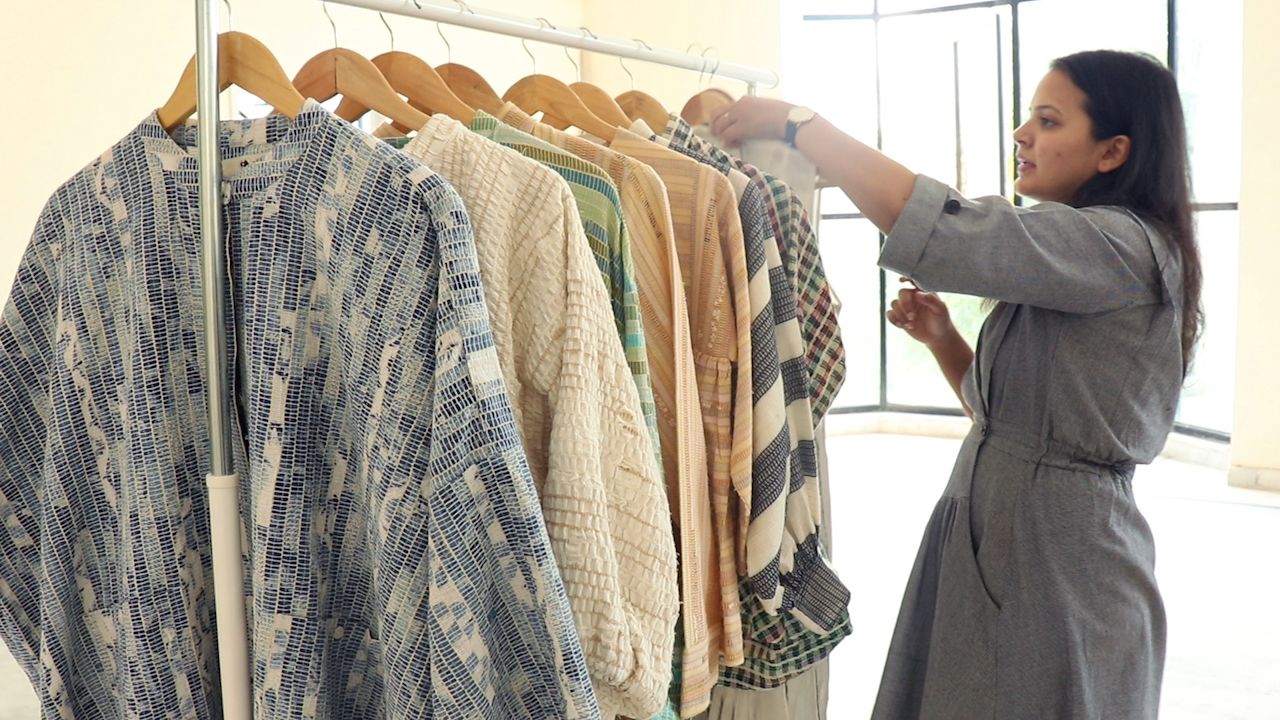The 7,000-km Journey of Sustainable Fashion Innovation
Can the trendless be trendy?
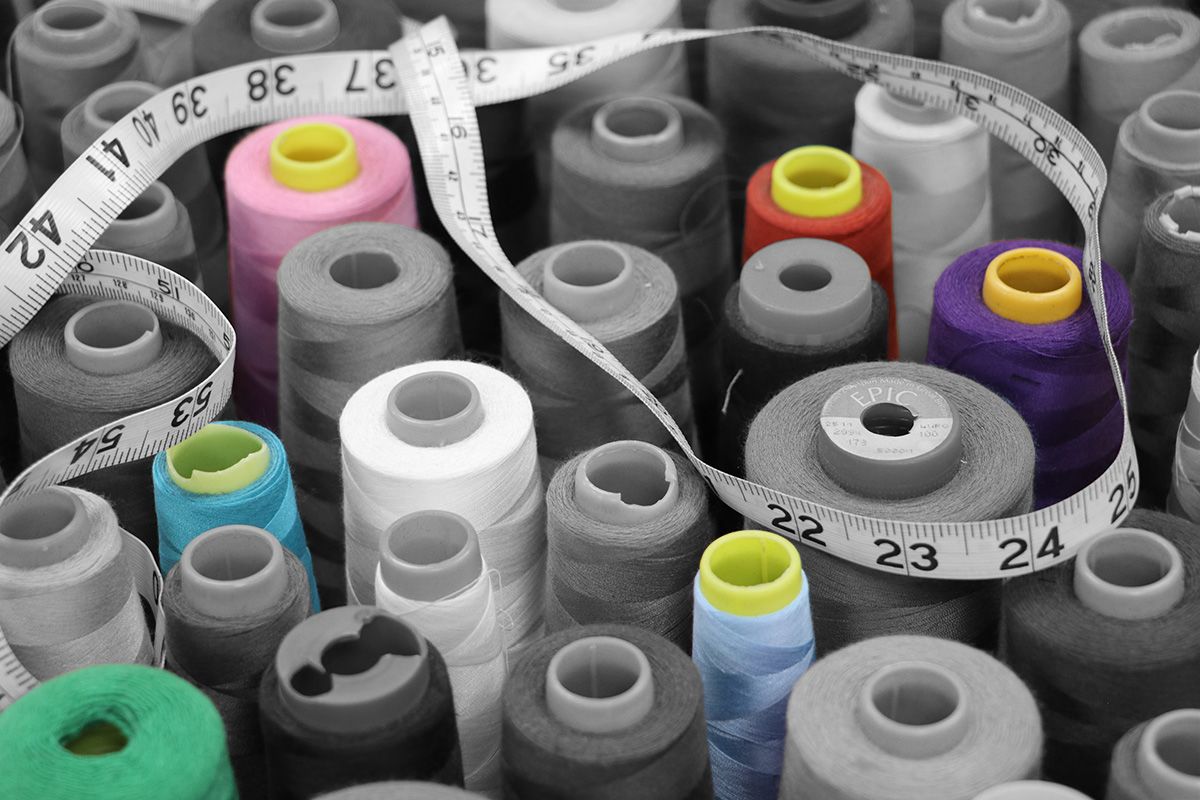
The environmental and social cost of the fashion industry is forcing us to rethink fashion. From upcycling an old pair of jeans into a tote bag to making an eco-friendly shirt from banana peels, Students at Manchester Metropolitan University and Pearl Academy meet designers using innovative approaches to transforming waste into must-have items.
In the video below, designers including, Ashita Singhal, founder of Paiwand and winner of the James McGuire Business Plan Competition 2018; Pratyush Kumar, founder of Pieux; Atul Sangwan, CEO and Managing Director of Abhivyakti Fashions; Vibhanshu Chaturvedi, co-founder of Hut-K, and Caitlin Aitken, co-director Stitched Up, talk about how they are challenging conventional norms of fashion design - introducing innovative ways to combat excessive waste; introducing new garment technologies and breaking boundaries regarding gender inclusive fashion.
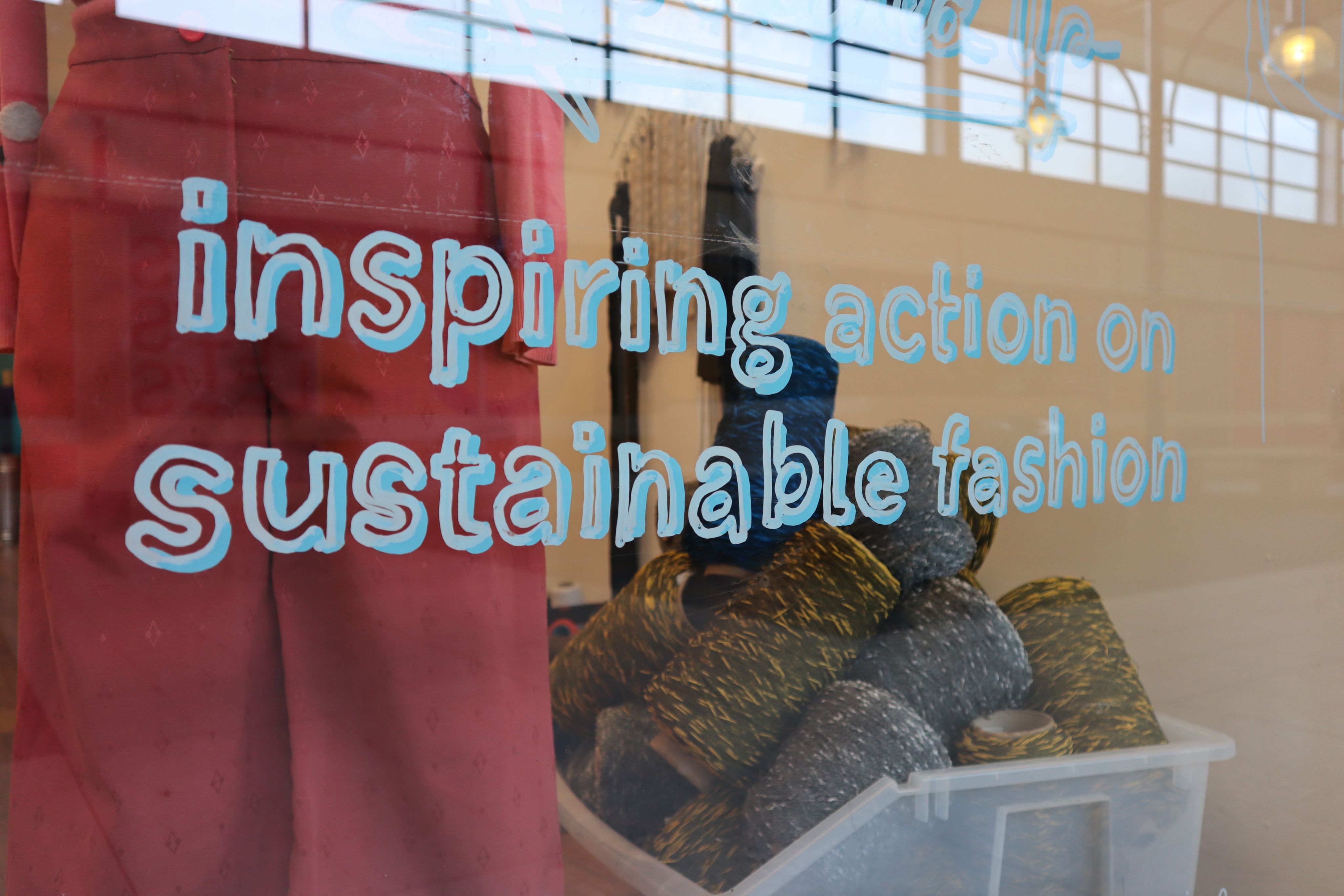
Stitched Up in Manchester encourages community-based solutions to fashion waste
Stitched Up in Manchester encourages community-based solutions to fashion waste
Areas of Sustainable Fashion Innovation
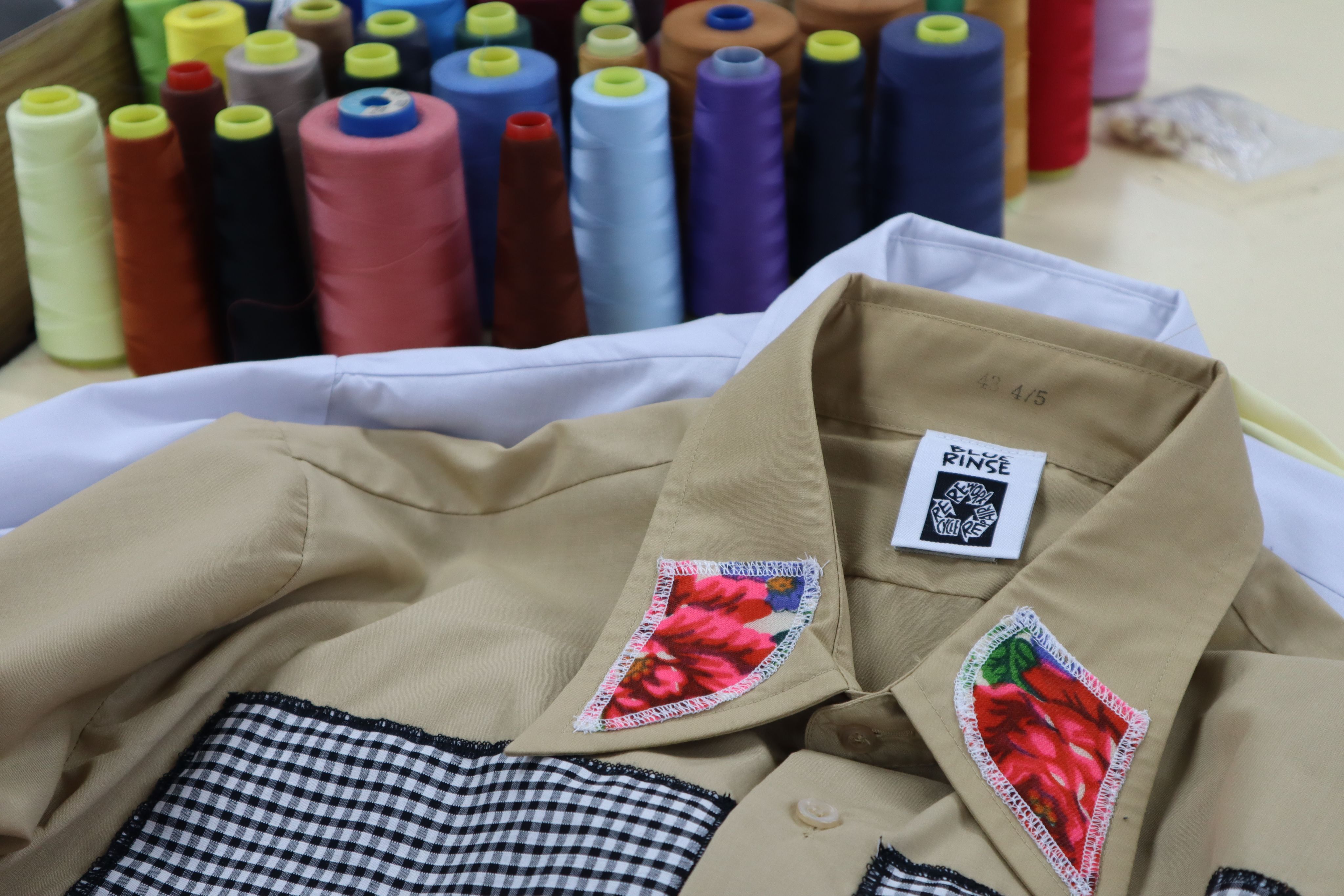
Upcycling
Taking someone else's trash and turning it into treasure, with added benefit for the planet.
'You can be trend-driven, and produce based on that trend, it doesn't mean it has to be unsustainable...' – Kaitlyn Bullen Brand Manager and Designer at Blue Rinse, a vintage retailer and wholesaler.
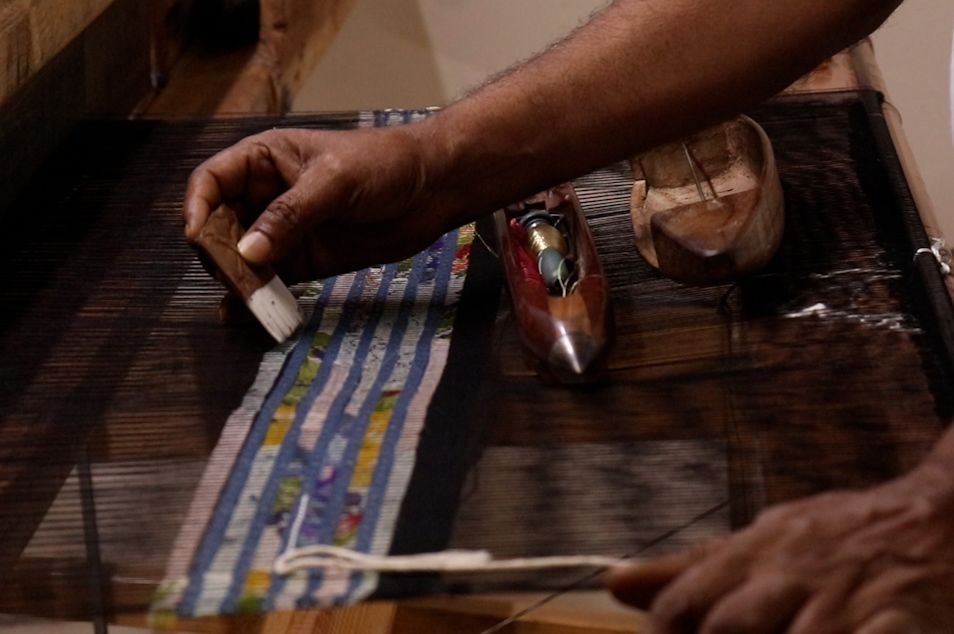
Materials
There's new purpose to anything you choose, if you have the right eye for it.
“I feel design is about solving problems and one of the biggest problems that we are facing is climate change. As designers, it is our responsibility to develop new products and solutions.” –
Ashita Singhal, founder of Paiwand, a design and innovation studio.
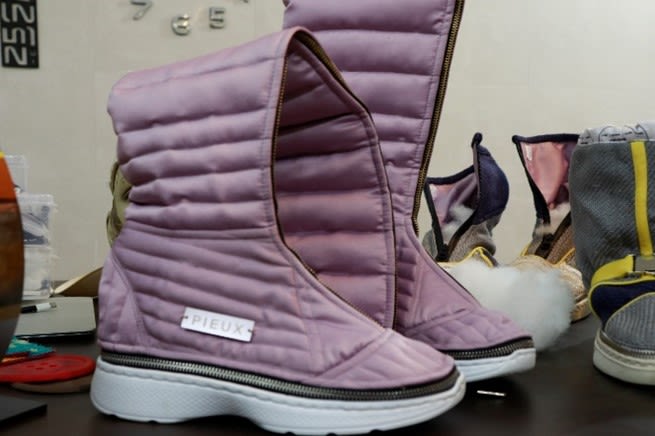
Technology
Innovation is the key to realising the 'green dream'.
“I want people to see my lines for its fashion element. Then notice that we have a sustainable brand story to tell of reclaimed yarn from carpet weavers, nylon waste from Italy and 3D printing for minimum waste in eyewear.” –
Pratush Kumar, founder of Pieux, a sustainable luxury fashion label.
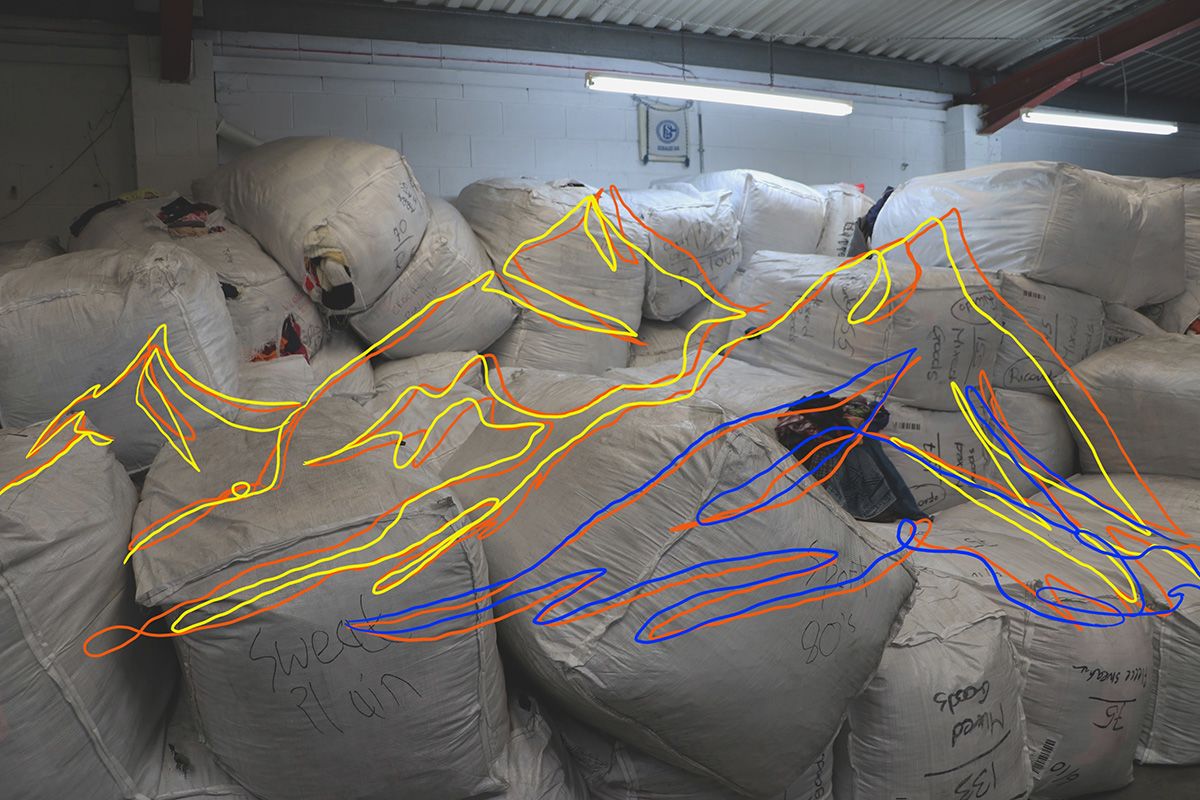
Waste
All that is disposed of is not necessarily lost. What is discarded can become raw materials for the new.
'Community ownership is so important for sustainable development' – Caitlin Aitken, co-director Stitched Up, a non-profit co-operative community organisation.
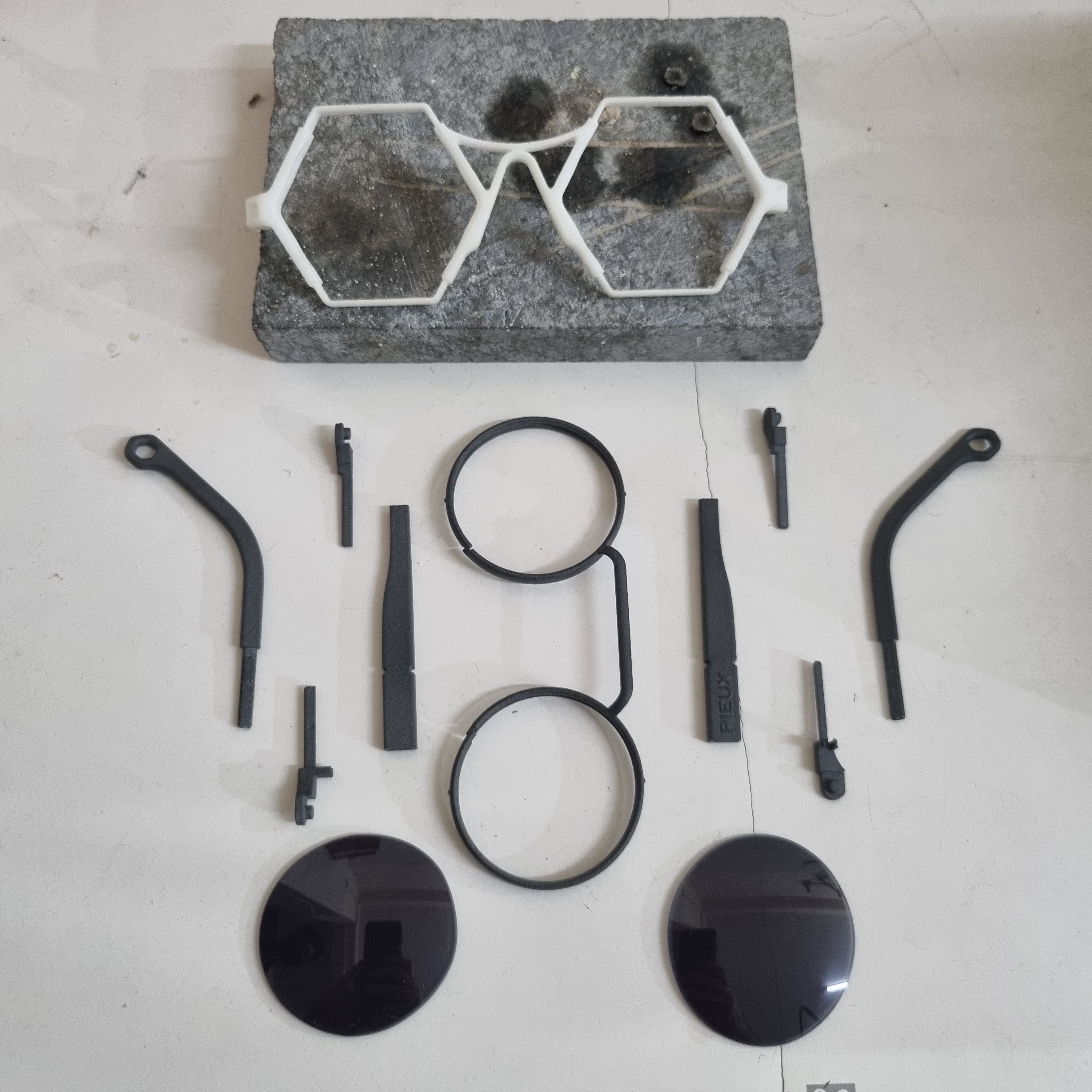
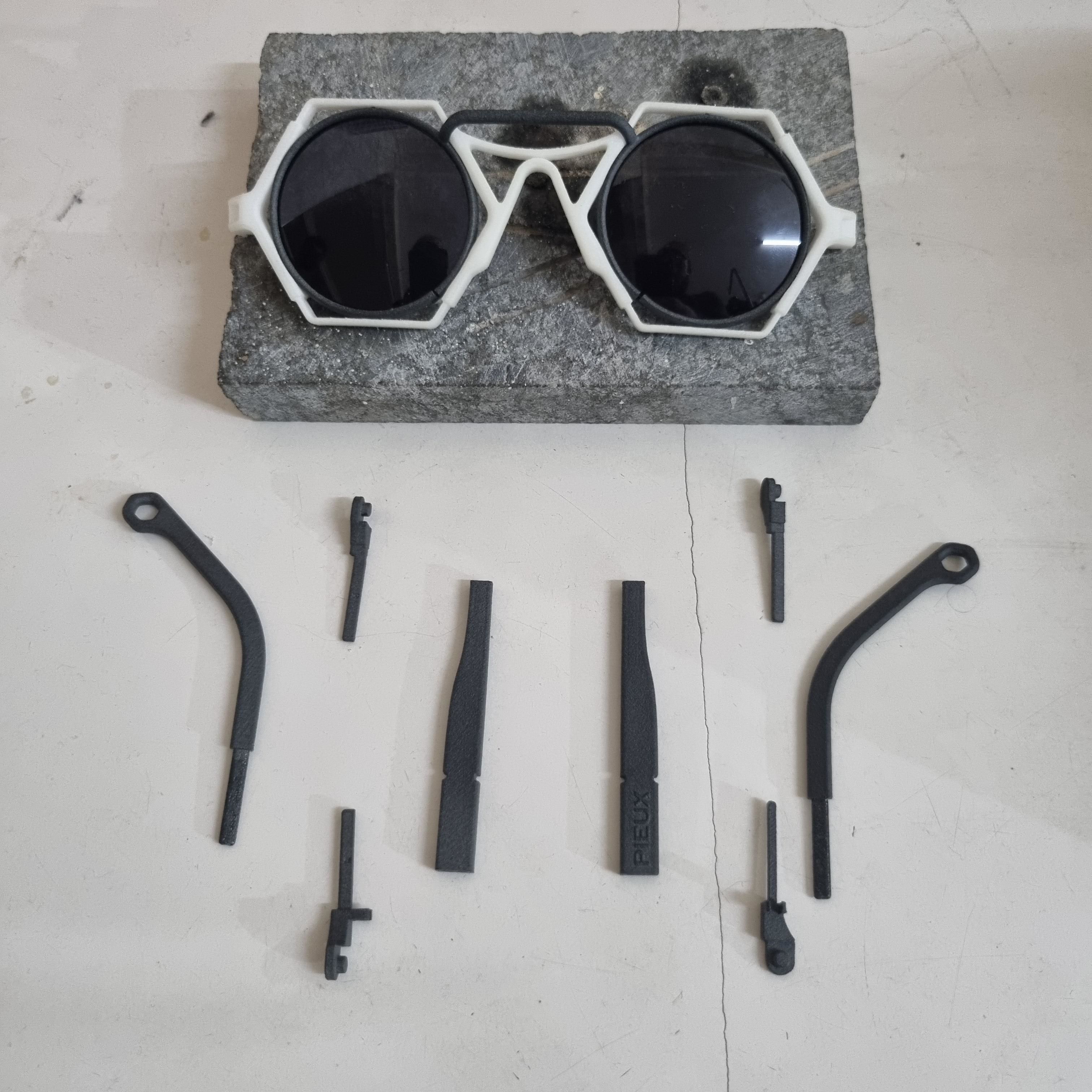
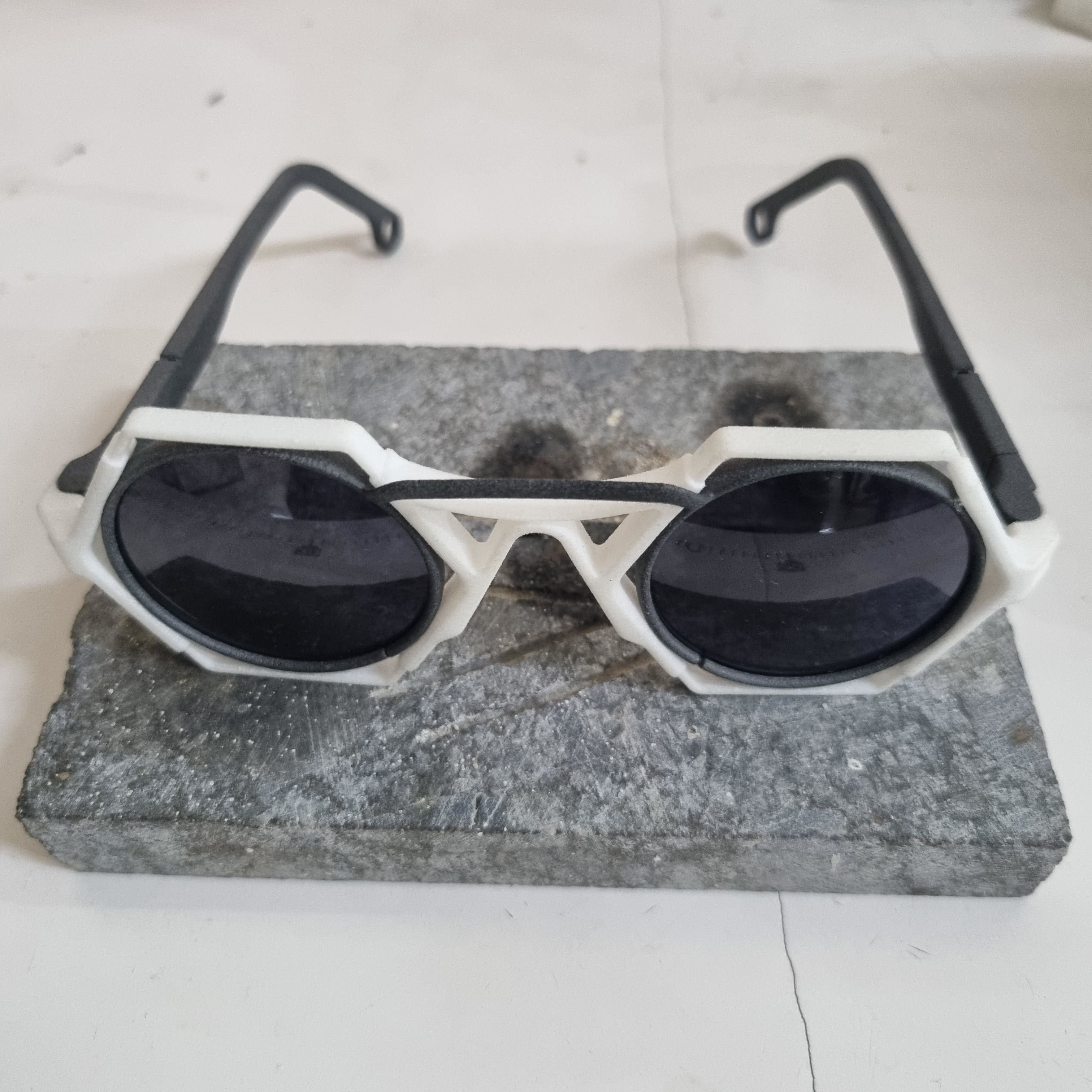

Designer Pratyush Kumar of Pieux is pushing fashion modularity forward with stylish, augmentable glasses
Designer Pratyush Kumar of Pieux is pushing fashion modularity forward with stylish, augmentable glasses

Designer Pratyush Kumar of Pieux is pushing fashion modularity forward with stylish, augmentable glasses
Designer Pratyush Kumar of Pieux is pushing fashion modularity forward with stylish, augmentable glasses

Designer Pratyush Kumar of Pieux is pushing fashion modularity forward with stylish, augmentable glasses
Designer Pratyush Kumar of Pieux is pushing fashion modularity forward with stylish, augmentable glasses
Humanity is facing a crisis of climate change, biodiversity loss and pollution and the fashion industry is one of the largest polluters.
In this podcast we talk to design warrior Pratush Kumar of Pieux, for whom sustainability is a byword in luxury fashion.
Sustainable fashion - upcycling and modularity
Modularity is not new. The act of modulating an outfit is to alter or 'piece together' different garments, fabrics, and items to create something new.
It’s only now, with the recognition of the environmental harm caused by this extreme wastefulness, that this method of designing is taking centre stage.
Fast fashion is inexpensive clothing produced rapidly to meet changing trends, and with rapid production comes piles of fabric waste - and it's mounting high.
Landfills across of the globe are receiving an estimated ‘92 million tonnes of garment waste each year’ with this amount expected to grow to ‘134 million per year by the year 2030’.
Conscious fashion designers from across the globe have been looking to combat this unsustainable way of production with new and innovate behaviours, from upcycling old garments to manufacturing clothes from fruit peel such as banana skins.
A typical form of upcycling is when old materials are reused to create something entirely new and fashionable. Brands such as Blue Rinse in the UK have made great strides in upcycling by manufacturing popular and sustainable items including tote bags made from old jeans or hair scrunchies made from off-cuts of old garments.
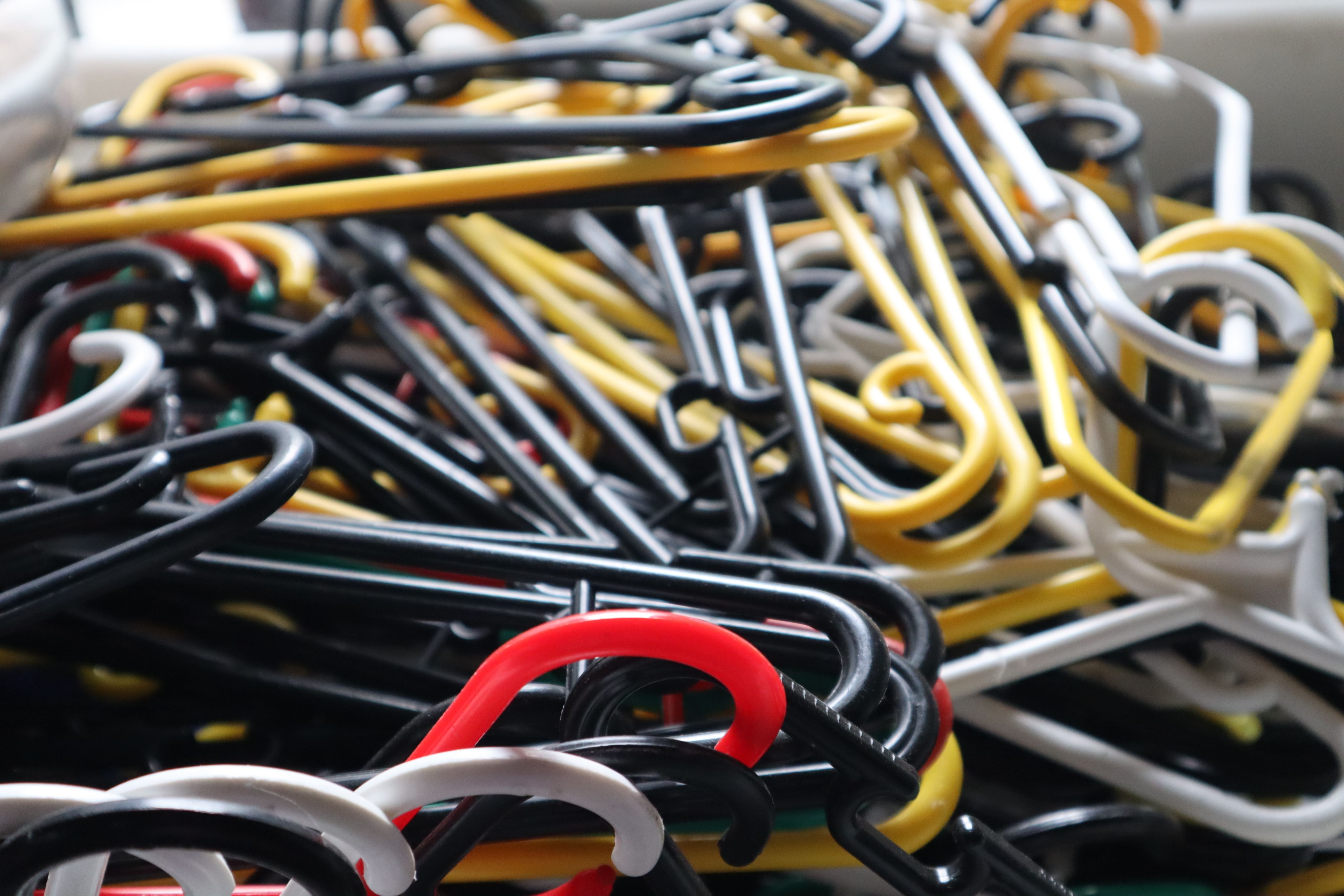

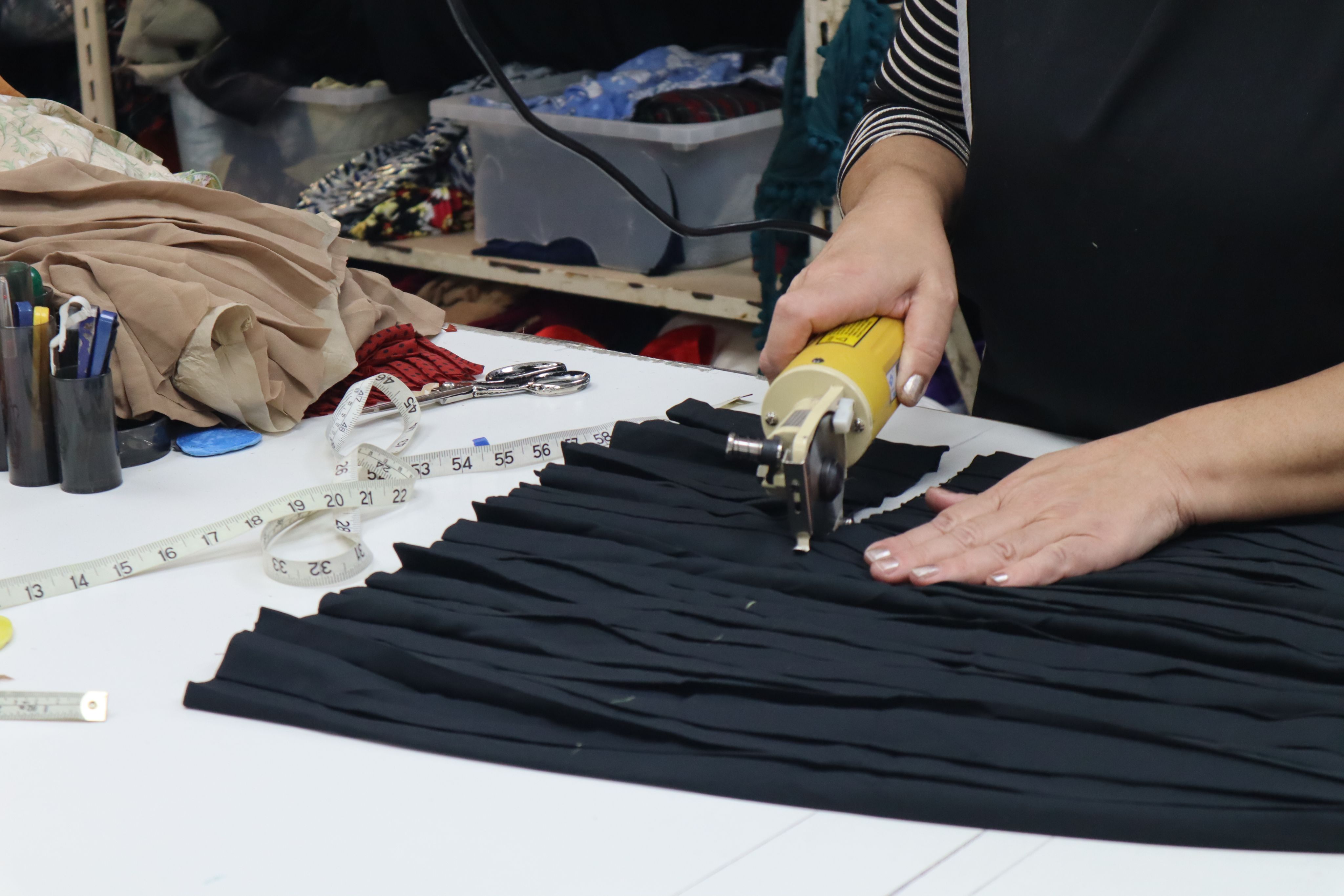
Designer Pratyush Kumar, founder of luxury fashion brand Pieux, won the Circular Design Challenge 2022 for his innovative approaches to sustainable fashion. His brand pushes fashion modularity forward with stylish, augmentable glasses as well as upcoming interchangeable shoes to give consumers greater freedom when it comes to styling their individual look.
Global fashion giants have also capitalised on this innovation. For example, in 2014 Nike re-released its modular and sustainable trainers, the Zvezdochkas. While the recognition it received was disappointing at the time, one thing was certain - putting modularity into consumers' hands was in theory both exciting and sustainable.
The late 2010’s saw the standard zip go from functional to fashionable and Pieux looks to take this idea a step further with ‘zip locking’. This interchangeability allows for different parts of a shoe to be zipped together giving both greater control over its look and extending its wearable life. The practice of taking an outfit apart and replacing a small portion of the garment has huge potential for increasing garment life and reducing waste.
In the following video we talk to Ashita Singhal about how her design studio, Paiwand is extending the lifecycle of garments.
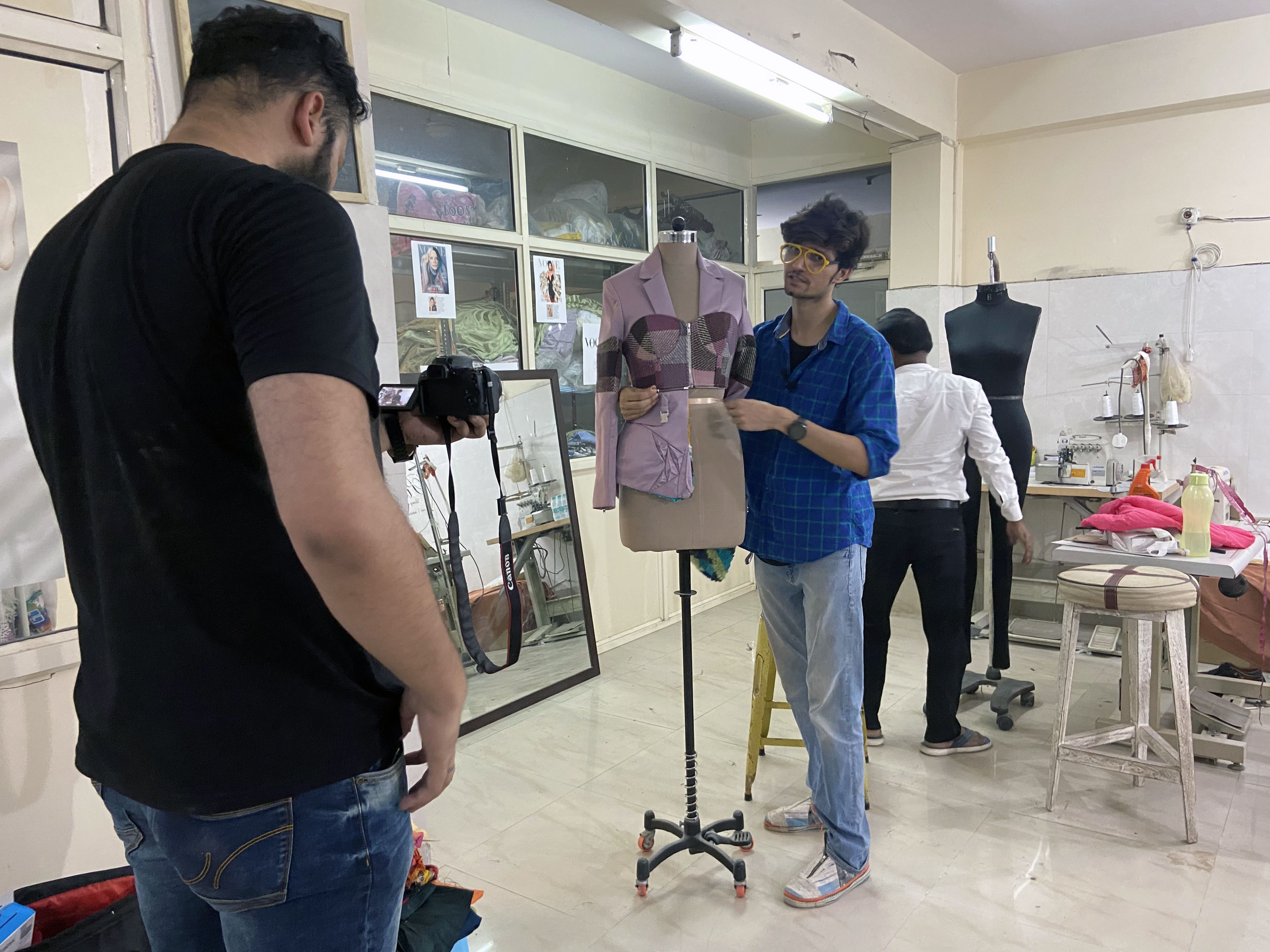
Sustainable fashion design
Paiwand Studio is breathing new life into old clothing and discarded textiles to create more sustainable fashion:
There is innovation everywhere at the Delhi headquarters of Paiwand. Whether it’s in the careful hands that pick apart brightly coloured threads and wind them together, or the timeless beat of weaving looms as recycled material comes together to create something new.
Ashita Singhal, 27, founded Paiwand in 2018 after initially creating the idea for a graduate project at Pearl Academy earlier the same year. Paiwand Lagana is a common phrase in India meaning ‘to patch or repair’ and Ashita was inspired by this to create an upcycling brand that takes old and unused fabrics and creates something beautifully unique.
Ashita believes she found an interest in sustainability quite naturally. “I’ve grown up in a very humble and modest family so we always respected raw material and any product that would come into the family," she says. "We would use it to the maximum and then we would finally think of discarding it. Having seen that, entering the fashion industry was baffling with the way they would throw away the waste and the way they were treating the garments and the textiles. So that gave me the motivation to bring what I had already learnt in the family and maybe change the way the industry functions.”
Sustainability is becoming a significant issue for the fashion industry as the climate and waste crisis gets more severe and the negative environmental impact of fast fashion is now clear.
Ashita and the team at Paiwand are working towards a more sustainable fashion industry through their goal of breathing new life into old fabric and creating a brand new story through that process.
“When I was studying, I realised the industry is oversaturated - there are so many people making clothes and somehow I couldn’t find my purpose," she says. "I was thinking why should I be another competitor in the market and make more clothes. So I thought of myself as being a collaborator where I can offer services to the existing fast fashion industry and help their process of upcycling and make it more accessible.
"To put it in the easiest terms, we are an upcycling service provider.”
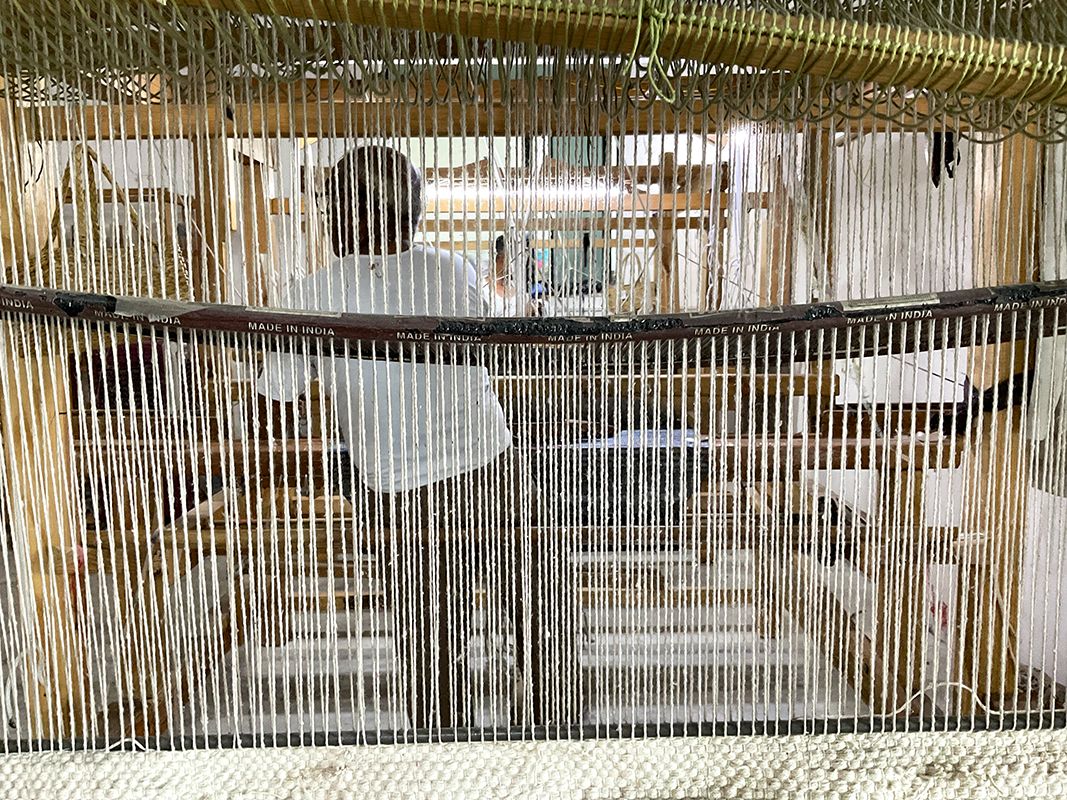
Our 7000 km journey between India and the UK has taught us a lot about how innovative designers are making changes to reduce the environmental impact of fast fashion while still enabling people to express themselves with new, exciting clothing and accessories. Upcycling and modularity has the potential to vastly reduce the volume of textile waste in years to come, but first it requires consumers to drop fast fashion trends and take control of their own look and style. Sustainably aware fashion organisation, Stitched Up in the UK, holds regular workshops and classes to teach people basic stitching skills to best preserve their clothing and maybe even learn how to upcycle or create something modular themselves.
To support the United Nations' Sustainable Development Goal Number 12, to ensure sustainable consumption and production patterns, media students from
Pearl Academy, India and journalism and fashion students of Manchester Metropolitan University, UK collaborated to produce this multimedia article.
Contributors:
Srishti Kumar : @srishtikumar
Reece Donlan
Maitri Mehrotra
Mehkirat Kaur
Nimish Goyal
Ananya Sawhney
Blaze Manion-Mabondzot
Raghav Chandra
V Aishwarya
Daisy Bradbury
Soline Fish
Riya Kumari
Ishnoor Singh
Prabhleen Kaur
Muskan Goel
Angel Martin
Ishnoor Singh
Niamh Melody
Jamie-Owen Harris
Pranjal Kukreja
